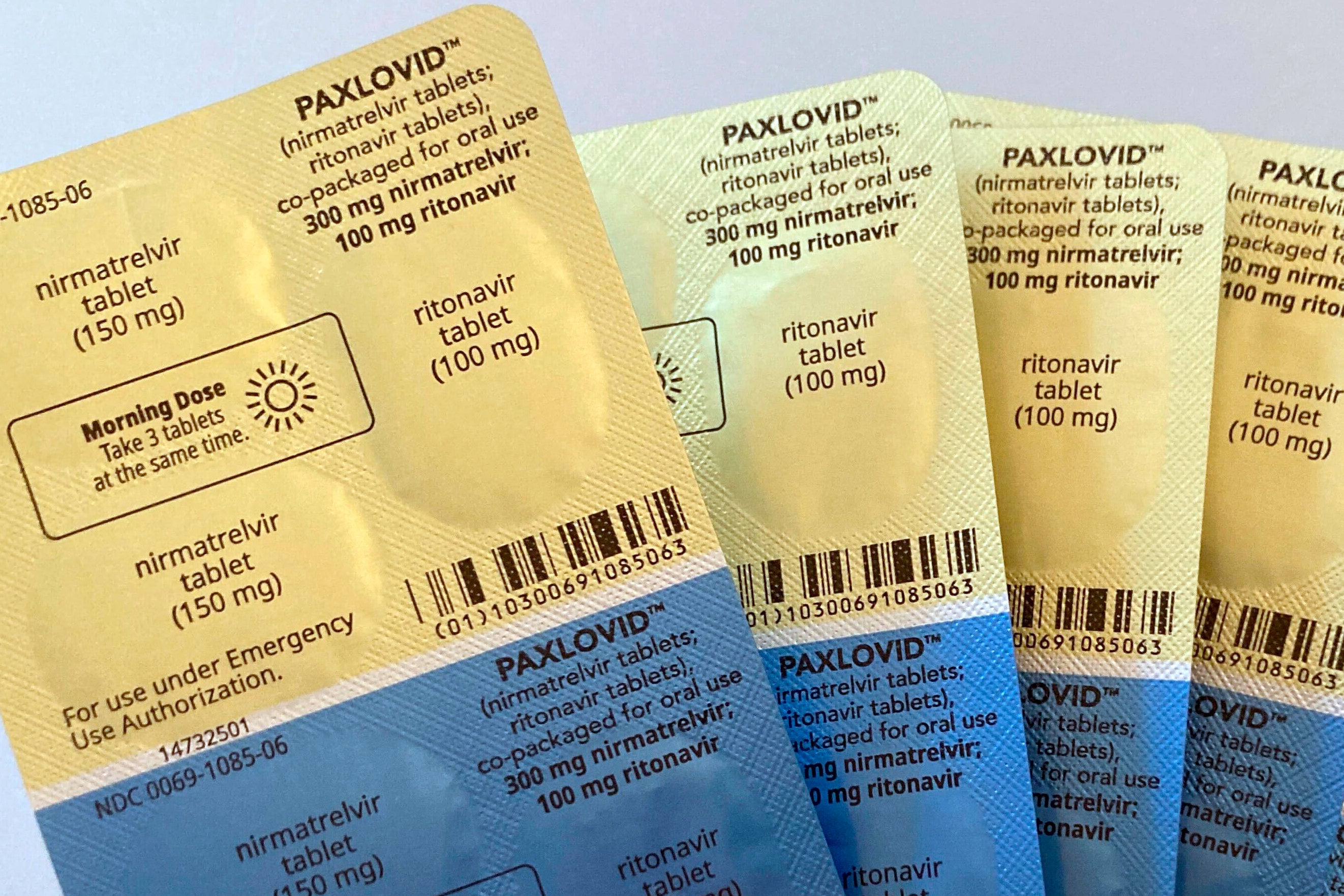Paxlovid can lessen the chance of a severe COVID-19 illness. Why is it underused?
Paxlovid can prevent hospitalization and death from COVID-19, but experts say it's being underused

Tens of thousands of Americans are hospitalized with COVID-19 every week. Thousands die from it every month. And yet, an antiviral treatment proven to lessen the chances of severe outcomes is going underused.
The drug, Paxlovid, is lauded by experts as a powerful tool that can prevent hospitalization and death from COVID-19. But the high price and doctors’ hesitation to prescribe the pills mean the five-day treatment isn’t getting to everyone who would benefit from it.
“When you read in your local newspaper that in this hospital, they’ve got this many COVID patients, most of those are preventable hospitalizations,” said Dr. Amesh Adalja, a senior scholar at Johns Hopkins University who sees Paxlovid as a useful tool to treat COVID-19.
One Centers for Disease Control and Prevention study found that Paxlovid can decrease hospitalization risks among adults by 51%. The drug is recommended for older people and other adults with certain underlying conditions.
When Paxlovid was first authorized for emergency use in the U.S. in December 2021, it was free for anyone who needed it. Once the government stopped funding the treatment, Pfizer set a list price of $1,390.
The drug remains free for people on federal insurance programs like Medicaid and Medicare through the end of this year, and uninsured people also can get it for free. But many of those people must go through a patient assistance program run by Pfizer to get the discounts. People on commercial insurance with high out-of-pocket costs can also get financial help through a separate co-pay assistance program.
Independent pharmacy owners find Paxlovid is expensive to carry because of reimbursement rates from commercial insurers, said Kurt Proctor, a senior vice president at the National Community Pharmacists Association.
“If you’re losing 5% on a $10 prescription, it’s very different than losing 5% on a $1,400 prescription product,” he said.
The high list price also is turning off some patients.
When Celise Ballow, of Junction, Utah, got COVID-19 recently, she never got the medication.
Ballow said her doctor declined to write her a prescription after telling her it wouldn’t be covered by her insurance. Now she wonders if she could have avoided some of the infection’s worst effects if she had been able to get the medication.
“I’m going on a month and a half and I’m still having nebulizer treatments. … I’m still exhausted,” Ballow said.
Another factor hurting uptake appears to be the long list of medications that shouldn’t be taken with Paxlovid. Many doctors may simply decide the risk of drug interactions isn’t worth it.
“If people are on four or five different medications, it does tend to be a pain to double check ‘is there an interaction here?’” said Dr. Sarah George, an infectious diseases professor at St. Louis University. Seeing a possible significant drug interaction “tends to put a physician off from prescribing a drug, even if there is a workaround,” she said.
The people most likely to benefit from Paxlovid were the least likely to get it in 2022, according to a recent study.
The study by Harvard researchers found that Paxlovid was disproportionately given to Medicare patients with lower risk of severe infection. If it had been properly utilized, the authors concluded, more than 16,000 COVID-19 deaths could have been prevented.
Dr. Michael Barnett, a Harvard health policy researcher who co-wrote the study, said it shouldn’t be that way.
“There are very few medications and very few patients whose potential medication interaction with Paxlovid is so severe that they’re better off not taking Paxlovid,” he said. “Very few of them are important enough that it’s a big risk to stop for a week.”
___
The Associated Press Health and Science Department receives support from the Robert Wood Johnson Foundation. The AP is solely responsible for all content.
Subscribe to Independent Premium to bookmark this article
Want to bookmark your favourite articles and stories to read or reference later? Start your Independent Premium subscription today.
